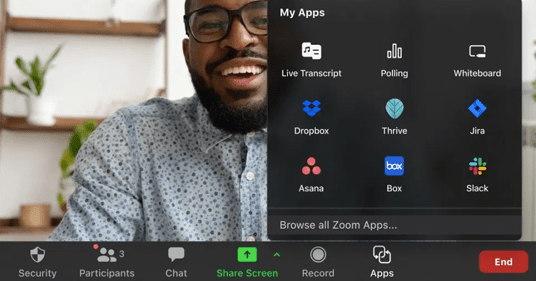HRTech
HR departments. Include M&A scenarios in your HRTECH planning.

I’ve been involved directly and indirectly in M&A in some form or other throughout my career. I remember one bank buying another bank in the middle of an HR systems project I was on, that was fun.
Over the last year or two, I’ve developed part of my business advising those buying and selling HRTECH companies
Generally, HR leaders understand the impact of M&A when the companies they work for are bought or sold. Post merger integration is a major element of M&A success and failure, and HR’s role is key. Have a look at Tim Galpin’s research on M&A. M&A isn’t easy, and too often it is a failure.
There is a mighty wave of HRTech consolidation a foot.
So, banks buy each other, steel companies buy each other, and increasingly, software companies buy each other. The wave of consolidation in HRTECH is underway.
Odds are, will happen to the vendors of products you use.
Have a look at Venero’s recent report for some stats on M&A in HRTECH.
Highlights:
- $45.5 billion in disclosed M&A value
- Median valuation: 8.6x EV/Revenue
- $8.8 billion of capital raised
- $20M average investment size (vs. just $7.6M in 2016)
Recent examples include Workday / Peakon, Cornerstone / Saba, ICIMS/Easyrecrue. Salesforce/Slack, ServiceNow/ Element, Sympa /Recruitee and just last week Xero /Planday.
This post is not aimed at those buying and selling HRTECH companies, it is aimed at the HR professionals and organisations using HRTECH. I’ve seen many HR leaders fail to effectively manage the positive or negative impacts when one of their vendors is acquired or acquires.
I’ll focus this on the scenarios when your favourite niche vendor gets acquired by a larger suite software vendor.
Prepare yourself for the M&A possibility
At least once a year, HR leaders should list out all their niche vendors, and estimate the likelihood that they will be acquired or not in the next 12 months. While you will probably guess wrongly, the effort of prediction will mean you prepare yourself for the possibility.
Remember, at some point most of the niche vendors you use will be acquired, or have some sort of significant financial event (good or bad). Heck, even your suite vendor might get acquired.
When an acquisition is announced, here’s what you should do first:
1. Understand the situation within a few days of the acquisition:
- Who is making the acquisition, and why?
- Is it being acquired by a vendor that you work with already, or is it from a different ecosystem?
- Is being acquired for the technology, or is it being acquired for the customer base and revenue?
- What is the track record of the acquiring vendor with other acquisitions?
- What is the product overlap with the acquiring vendor’s portfolio?
- Where is the acquirer headquartered?
2. Assemble key information (you should have this at your fingertips because you run a tight tech asset inventory):
- What business processes do you run on the acquired vendors tech?
- What licenses or subscriptions do you have? When do they come up for renewal?
- What is the current committed roadmap?
How to react to the acquisition as an HR leader?
1. Your niche vendor has been acquired by a vendor you use already
In this case, you are in a strong position. Take advantage of the period between announcement and acquisition to negotiate any renewals etc. Usually acquired products become more expensive once acquired by the suite vendors.
Here’s what you could do right away:
- Establish why they have done the deal.
- You are unlikely to discover details of the integration plans because of the quiet period until the deal formally closes, but start asking anyway. Ask to be in the early feedback loop
- Is a tuck-in on bolt on play?
- Identify key leaders from the acquired company that may be at risk of heading to the beach
- Make sure you review your contracts, especially the data protection provisions, as a change of ownership is likely to have significant impact on risk, data controller/processor rules etc.
- Use acquisition disruption to maximise your discounts.
- Understand product overlaps, and don’t always assume that the acquired products edge features will survive. Develop a product matrix. Here’s an example
Workday buys Peakon.
|
|
Survey / engagement |
D&I |
Performance management |
|
Workday |
Weak |
New (mainly North American) |
Established /mature |
|
Peakon |
Strong |
New (mainly EMEA) |
Experimental / innovative |
- It is likely that both roadmaps will be disrupted. Timings are going to going to be toast, as the integration process will slow things down. Don’t bet on the the pre-acquisition roadmap. But all in all you are in a good place.
2. Your niche vendor has been acquired by a suite vendor you don’t use
In that case, you might have a problem. In the short term don’t panic, but the longer term attention won’t be on your needs, or on integration with your key vendor.
Here’s what you could do right away:
- Lock in any pricing you have, as post acquisition, prices almost always go up.
- Make sure you are good from GDPR perspective, because a change of ownership is a big deal, especially if it is an EU vendor being acquired by a US one
- Start to assess your competitive options.
- Use this as lever to beat up your suite vendor.
- If integration isn’t that important and the application runs well standalone, then you don’t need to rush to replace it (there are still a lot of SuccessFactors performance management and learning customers running on top of non-SAP core HR systems, for instance).
Conclusion
In both cases, look at past track record of the suite HRTech vendor. How did the suite vendor manage its last acquisition? Check with other companies. Have a look in Linkedin and see who is still there a few years later.
With any acquisition there will be changes. The changes in the product teams will take time to have an impact on the product, but support and sales often have high turnover post acquisition as people may suddenly have stock options vest, or don’t fancy working with the big co. Don’t assume your friendly niche account manager will be there forever.
Always be expecting your cool niche vendors to be acquired. It is where we are in the cycle. Plan for it, and you will be so much better off than those who don’t.
Disclosure. Workday, Peakon, Easyrecrue/iCIMs, Sympa/Recruitee are Otter Advisory Clients.



